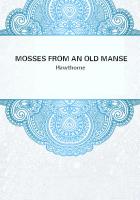Throughout that summer Chad fought his fight, daily swaying this way and that-- fought it in secret until the phantom of neutrality faded and gave place to the grim spectre of war--until with each hand Kentucky drew a sword and made ready to plunge both into her own stout heart. When Sumter fell, she shook her head resolutely to both North and South. Crittenden, in the name of Union lovers and the dead Clay, pleaded with the State to take no part in the fratricidal crime. From the mothers, wives, sisters and daughters of thirty-one counties came piteously the same appeal. Neutrality, to be held inviolate, was the answer to the cry from both the North and the South; but armed neutrality, said Kentucky. The State had not the moral right to secede;the Nation, no constitutional right to coerce: if both the North and the South left their paths of duty and fought--let both keep their battles from her soil. Straightway State Guards went into camp and Home Guards were held in reserve, but there was not a fool in the Commonwealth who did not know that, in sympathy, the State Guards were already for the Confederacy and the Home Guards for the Union cause. This was in May.
In June, Federals were enlisting across the Ohio; Confederates, just over the border of Dixie which begins in Tennessee. Within a month Stonewall Jackson sat on his horse, after Bull Run, watching the routed Yankees, praying for fresh men that he might go on and take the Capitol, and, from the Federal dream of a sixty-days' riot, the North woke with a gasp. A week or two later, Camp **** Robinson squatted down on the edge of the Bluegrass, the first violation of the State's neutrality, and beckoned with both hands for Yankee recruits. Soon an order went round to disarm the State Guards, and on that very day the State Guards made ready for Dixie. On that day the crisis came at the Deans', and on that day Chad Buford made up his mind. When the Major and Miss Lucy went to bed that night, he slipped out of the house and walked through the yard and across the pike, following the little creek half unconsciously toward the Deans', until he could see the light in Margaret's window, and there he climbed the worm fence and sat leaning his head against one of the forked stakes with his hat in his lap. He would probably not see her again. He would send her word next morning to ask that he might, and he feared what the result of that word would be. Several times his longing eyes saw her shadow pass the curtain, and when her light was out, he closed his eyes and sat motionless--how long he hardly knew; but, when he sprang down, he was stiffened from the midnight chill and his unchanged posture. He went back to his room then, and wrote Margaret a letter and tore it up and went to bed.
There was little sleep for him that night, and when the glimmer of morning brightened at his window, he rose listlessly, dipped his hot head in a bowl of water and stole out to the barn. His little mare whinnied a welcome as he opened the barn door. He patted her on the neck.
"Good-by, little girl," he said. He started to call her by name and stopped.
Margaret had named the beautiful creature "Dixie." The servants were stirring.
"Good-mawnin', Mars Chad," said each, and with each he shook hands, saying simply that he was going away that morning. Only old Tom asked him a question.
"Foh Gawd, Mars Chad," said the old fellow, "old Mars Buford can't git along widout you. You gwine to come back soon?""I don't know, Uncle Tom," said Chad, sadly.
"Whar you gwine, Mars Chad?"
"Into the army."
"De ahmy?" The old man smiled. "You gwine to fight de Yankees?""I'm going to fight WITH the Yankees."
The old driver looked as though he could not have heard aright.
"You foolin' this ole nigger, Mars Chad, ain't you?"Chad shook his head, and the old man straightened himself a bit.
"I'se sorry to heah it, suh," he said, with dignity, and he turned to his work.
Miss Lucy was not feeling well that morning and did not come down to breakfast. The boy was so pale and haggard that the Major looked at him anxiously.
"What's the matter with you, Chad? Are you--?""I didn't sleep very well last night, Major."The Major chuckled. "I reckon you ain't gettin' enough sleep these days. Ireckon I wouldn't, either, if I were in your place."Chad did not answer. After breakfast he sat with the Major on the porch in the fresh, sunny air. The Major smoked his pipe, taking the stem out of his mouth now and then to shout some order as a servant passed under his eye.
"What's the news, Chad?"
"Mr. Crittenden is back."
"What did old Lincoln say?"
"That Camp **** Robinson was formed for Kentuckians by Kentuckians, and he did not believe that it was the wish of the State that it should be removed.""Well, by --! after his promise. What did Davis say?""That if Kentucky opened the Northern door for invasion, she must not close the Southern door to entrance for defence.""And dead right he is," growled the Major with satisfaction.
"Governor Magoffin asked Ohio and Indiana to join in an effort for a peace Congress," Chad added.
"Well?"
"Both governors refused."
"I tell you, boy, the hour has come."
The hour had come.
"I'm going away this morning, Major."
The Major did not even turn his head.
"I thought this was coming," he said quietly. Chad's face grew even paler, and he steeled his heart for the revelation.
"I've already spoken to Lieutenant Hunt," the Major went on. "He expects to be a captain, and he says that, maybe, he can make you a lieutenant. You can take that boy Brutus as a body servant." He brought his fist down on the railing of the porch. "God, but I'd give the rest of my life to be ten years younger than I am now.""Major, I'm GOING INTO THE UNION ARMY."















